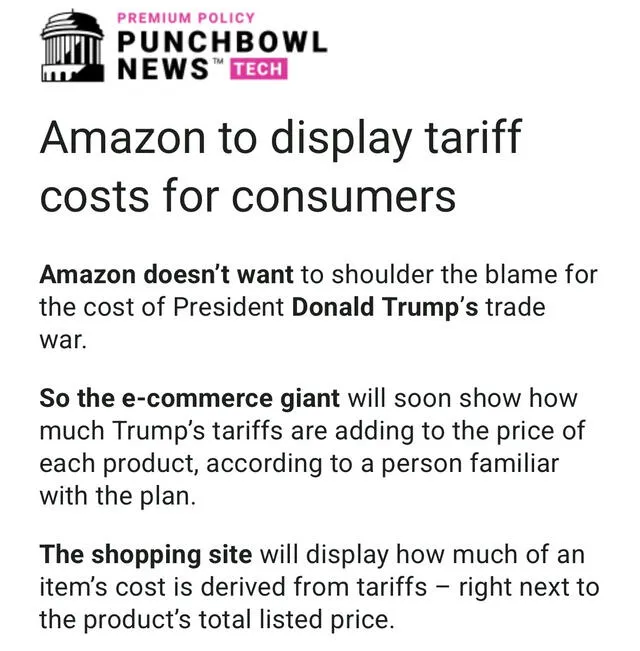Amazon’s tariff disclosure proposal highlights consumer cost of trade policies
As Amazon’s brief flirtation with tariff price tags triggers a political firestorm, the incident exposes the high-stakes battle between corporate transparency, trade policy, and the fine line businesses must walk in today’s polarized economic landscape.

Reports emerged that Amazon was considering displaying the impact of tariffs on product prices, aiming to provide consumers with transparency regarding cost increases due to import taxes. This initiative was perceived as a move to illustrate how trade policies directly affect consumer pricing.
The Trump administration reacted strongly to these reports. White House Press Secretary Karoline Leavitt labeled Amazon's potential move as a "hostile and political act," questioning the company's motives and suggesting alignment with foreign interests. The administration's response underscored the sensitivity surrounding trade policies and their domestic implications.
Amazon’s tariff price disclosure plan for budget store sparks debate over trade transparency and corporate politics
Amazon clarified that the idea of displaying tariff costs was considered only for its "Haul" storefront, a platform targeting budget-conscious consumers with products under $20. The company emphasized that this concept was never approved or implemented on its main site, and there were no plans to proceed with such disclosures.
Despite Amazon's clarification, the incident sparked a broader discussion about the transparency of tariff impacts on consumer goods. Economists and industry experts noted that while such disclosures could inform consumers, they also risk politicizing corporate practices and potentially straining relationships with government entities.

ALSO SEE: 14-Year-Old goes fishing on Lake Michigan and stumbles upon something that left him speechless
Amazon tariff controversy highlights business struggles with trade policy, transparency, and global supply chain pressures
The controversy also highlighted the ongoing challenges businesses face amid fluctuating trade policies. With tariffs influencing supply chains and pricing strategies, companies like Amazon must navigate the delicate balance between transparency, consumer trust, and political considerations.

Amazon’s tariff price display plan, though never implemented, ignited political tensions and raised critical questions about transparency in global trade and corporate responsibility. Photo: X
As the debate continues, the incident serves as a case study in the complexities of corporate communication, government relations, and the intricate dynamics of global trade in the digital age.












